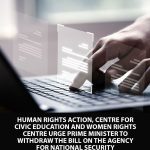
HUMAN RIGHTS ACTION (HRA), CENTRE FOR CIVIC EDUCATION (CCE) AND WOMEN RIGHTS CENTRE (WRC) URGE PRIME MINISTER TO WITHDRAW THE BILL ON THE AGENCY FOR NATIONAL SECURITY
25/07/2025
21 NGOs APPEAL TO THE GOVERNMENT AND MPs: TAKE THE OPPORTUNITY TO REFORM THE NATIONAL SECURITY AGENCY
31/07/2025PARENTS RECOGNIZE CIVIC EDUCATION AS KEY TO A BETTER SOCIETY AND LESS VIOLENCE
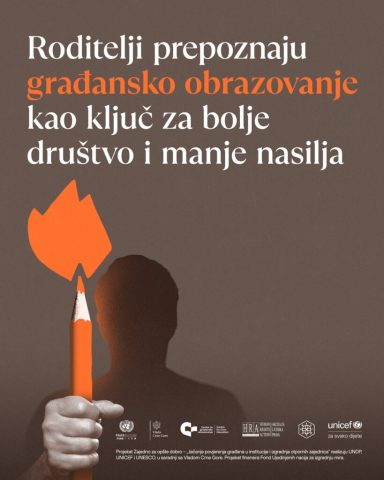
Most parents in Montenegro did not have Civic Education as a subject during their schooling, but today they see it as an important tool for shaping children’s character and combating violence, hatred, and intolerance, while strengthening democratic values among youth, this was revealed through focus group findings within the project “Enhancing Education for Civic and Human Rights: Educational Reforms for a Stronger Democracy“, implemented by the Centre for Civic Education (CCE), Human Rights Action (HRA), and the Center for Women and Peace Education ANIMA.
Civic education teaches children to understand rights and responsibilities, think critically, and actively engage in society. Modern international approaches recognize it as a key tool for strengthening social cohesion and increasing political participation among youth.
In Montenegro, the subject Civic Education was introduced as a mandatory course in primary schools during 2004/05 school year, and in secondary schools from 2006/07. Unfortunately, curriculum reforms in 2017 reclassified it as an elective subject, significantly reduced the number of classes and student coverage. Moreover, there has been a lack of investment in teacher training and the promotion of the subject’s importance in the education system, leading to its gradual marginalization and with negative consequences for education and society.
At a time when the reintroduction of Civic Education as a compulsory subject is being reconsidered, mainly due to the efforts of civil society organizations, the views of parents represent a particularly valuable reference point.
The focus groups provided an opportunity to gather qualitative insights into parents’ attitudes, starting with how familiar they are with the term “civic education” today, and the subject itself, as well as whether they believe it should once again be mandatory, given the numerous societal changes since it became elective. This is particularly relevant in the context of “internet environment” in which today’s generations are growing up, accelerated digitalization, increasing societal polarization, more frequent examples of hate speech, especially on ethnic and religious grounds, and rising peer violence.
Focus group findings indicate that most parents did not have Civic Education as a subject during their schooling and lack sufficient information about its content and importance. Much of their knowledge comes from their children who had the opportunity to choose it as an elective. Some parents even mistakenly associate it with the former subject Constitution and Citizens’ Rights.
Encouragingly, a significant number of parents see Civic Education as a tool for children’s character-building, noting its potential to prevent violence, foster equality, and restore ethical values. Parents also believe that the subject offers opportunities for children to engage with other important topics, such as sustainability and climate change.
It is important to note that not a single parent in the focus groups expressed opposition to introducing Civic Education as a mandatory subject. Parents have different ideas about how classes should be organized, butemphasized the importance of topics such as institutional literacy, social skills and empathy, human rights and equality, digital safety and peer violence, ecology, and sustainability.
Parents expressed readiness to share their professional expertise as guest lecturers in certain areas and to participate in advisory roles in programme design and evaluation. They believe children should learn this subject from teachers who genuinely value its importance and can serve as role models, while the subject should be organized through practical classes and workshops.
Focus group findings highlight a strong interest and clear recognition of the need to make Civic Educationmandatory again. At the same time, there is an expectation that it should not be “just another grade on paper,” but rather real, practical preparation for life – teaching how to resolve conflicts, show solidarity, care for the environment, and be active members of their communities.
The focus groups were conducted in May 2025 across three regions of Montenegro, with a stratified sample of 31 parents (10 in the North, 11 in the Central, and 10 in the Southern region). The Professional support for implementation was provided by the Damar Institute.
The project “Enhancing Education for Civic and Human Rights: Educational Reforms for a Stronger Democracy” is part of the programme “Building Trust in Institutions and Fostering Resilient Communities”, implemented by UNDP, UNICEF, and UNESCO, in cooperation with the Government of Montenegro and funded by the UN Peacebuilding Fund.


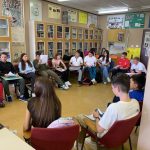

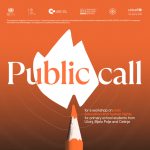
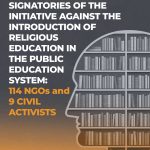

 English
English